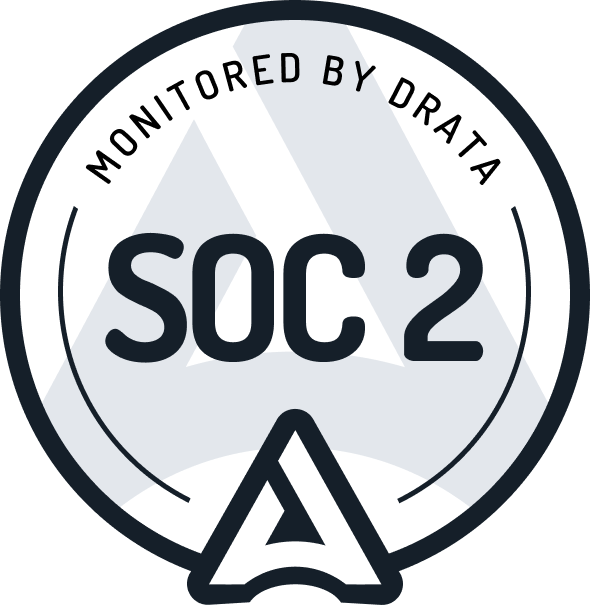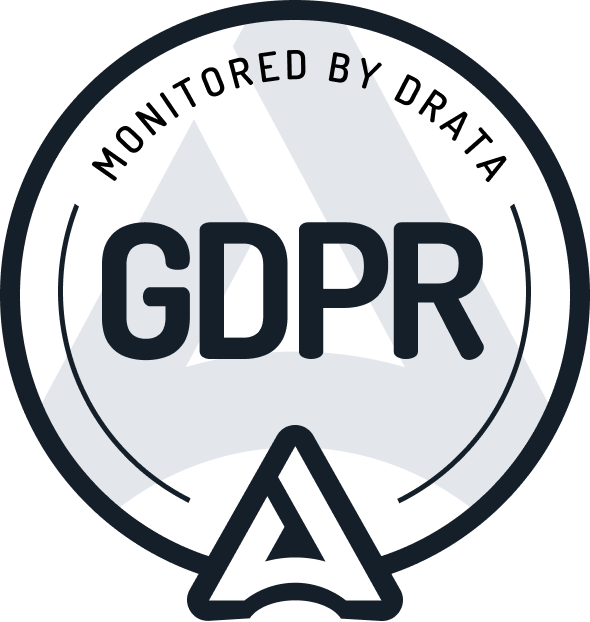
crowd.dev explained for everyone, from a child to an engineer
Get notified when customers mention you online - with Crowdlens
Anyone who works in tech, and worse if it's a start-up, looks into confused faces when explaining what their company does. The crowd.dev team is no different. From family members to friends, the phrases B2B SaaS, community-led growth platform, and developer communities don’t always get you very far. Explaining it all to a dev tool founder or engineer is easier, but of course, they care about other aspects of crowd.dev, so our answers are different.
As a good refresher and exercise for ourselves, and hopefully, to answer any remaining questions you may have, we collected here how we would explain crowd.dev to different audiences.
So what is crowd.dev?
Explained to a child 👧👦

Think about your favorite toy, those building blocks you love so much. Remember how not only you but also your friends loved it when you were playing with it together and then they went out and bought their own?
Well, the makers of those blocks worked on them for a long time so that you and your friends like it. They did this by testing it out with many different kids worldwide. They observed how kids played with the blocks, collected their feedback many times, and made several different versions before landing on the one you and your friends enjoyed.
Well, crowd.dev, helps companies build products people love, just like those building blocks. We help them find people to try their product, get feedback and information on whether people like it, and show them that information all in one place. We help them find and encourage people to share their products with others. The biggest difference is that we do this on the internet.
Explained to a college grad 🎓

crowd.dev is a platform for businesses building products for developers (e.g. like Atlassian, Twilio, GitLab). Our platform helps these businesses build strong developer communities around their products to grow.
Why do they need to build these communities to grow their business? Developers have particular needs regarding the software they use and end up buying. Businesses selling to them, therefore, need to closely understand their needs by communicating and collaborating with them on an ongoing basis. The primary way to do this is to slowly build up a group of developers who try out and give feedback on a product and then hopefully buy it and spread it within their network.
However, building a community is hard work. For one, developers like to spend their time and communicate with businesses through various platforms. These include the likes of Discord, Twitter, Github, Slack, and more. This means businesses are constantly managing endless tools and working with incomplete data.
Additionally, finding developers to join your community in the first place and then keeping them engaged in the long term also takes a lot of work.
crowd.dev is built to help developer-focused companies with precisely this problem. Our technology aggregates all data across different community platforms into one easy-to-use interface. Our users have an overview of all their members, the organizations they belong to and their activities in one. We also provide advanced analytics, actionable insights and workflow automation so that they understand their community needs and be able to build and sell their product.
crowd.dev is also open-source. That means our software is open to the public, and anyone can check the code and use it for their own projects. They can also contribute and make suggestions to our code to make the product better, for example, by adding a new feature to it that makes sense for their industry.
Explained to a marketer or sales rep 💁♀️

Developers are a special kind of audience to market and sell to. They don’t respond well to traditional paid ads or sales emails and calls. They are, however, the entry point for B2B developer-focused businesses to sell to. This is because, nowadays, they tend to be the decision-makers for what software their organizations buy. For more detail, check out our blog post on “Why traditional marketing fails for developers and what to do about it.”
So what to do? The strategy that works well is to build thriving developer communities to market and sell a product. This means companies use online platforms like Discord, Twitter, Github, and Slack to build communities of developers that are open to trying, discussing, and in the end, purchasing software.
crowd.dev is here to make that process as simple and effective as possible. We aggregate all the data of community members and the organizations they belong to into one dashboard. You can do things like run analytics and identify the most active members in your community.
Another way you may think about crowd.dev is basically as a CRM for developer-focused products. Like HubSpot integrates with email marketing solutions and social media accounts to provide unified analytics about leads, the same way crowd.dev integrates with GitHub, Discord, and Slack so you can eat, sleep and breathe your developer community.
As a marketer, you can use crowd.dev to understand the needs of your organization’s community members. This allows you to run targeted campaigns by approaching the right community members with the right messaging and content.
If you are in sales, you will essentially use crowd.dev to execute a bottom-up sales strategy. You will be able to identify qualified opportunities within your community and see information on their organization and individual needs.
crowd.dev is also open-source, which means that users have the option to host the platform themselves and keep ownership of their data (useful in highly regulated industries). In addition, anyone can contribute to the code and build applications and features tailored to their own needs or niche.
Explained to a community manager 🌐

crowd.dev is here to make your job seamless. You may have heard of some community management tools before, but we are different as we focus exclusively on developer communities and are the only open-source community management tool available on the market.
With crowd.dev you don’t need to waste time switching between endless platforms like Discord, Slack, GitHub, Twitter, and Discourse, to keep track of and communicate with members. You can also ditch the spreadsheets or any other analytics and reporting tools you use.
We bring all the data from each platform into a single source of truth. You can see all your communities’ activities and rich information on each member in one dashboard. We provide analytics and reporting based on industry benchmarks and best practices to allow you to track the health of your community. This includes metrics like sentiment analysis and engagement level to easily spot and filter for influential community members (maybe your next developer advocate).
crowd.dev also provides a workflow builder, meaning you can automate routine tasks and create custom notifications based on your needs. We want you to focus your time as a community manager on building strong relationships with individual members, not menial tasks.
Depending on what your community goals are, we have further premium apps that you can modularly choose from. If you’re focused on growing your community, our Eagle Eye app allows you to find and engage with relevant content across channels like Hacker News and DEV. If you wish to improve your support content and search ranking, our Community Help Center App automatically publishes landing pages with community-generated support content discoverable by search engines.
We are also open-source, which is useful if your company has strict data requirements or your specific use cases demand a lot of flexibility and extensibility.
Explained to a dev tool founder 💼

You’ve heard of community-led companies but realized it's not that easy to execute on? That’s why we made crowd.dev. We want to help you build and harness a prospering developer community that actively uses your product, shares feedback and contributes back.
In particular, for early-stage founders, understanding the nuances of your users and building relationships with them and the organizations they work for is crucial for reaching product-market-fit and establishing a bottom-up sales strategy to grow.
You have probably run into the difficulties of community building, from finding the right members, engaging them once they are there, and keeping on top of all the different community platforms out there.
crowd.dev has integrations for all major developer-focused platforms and brings data on your members and their organizations into one place. This allows you to never miss any feedback and iterate at speed. On top of that, our platform:
- Collects and analyzes community activities, running sentiment analysis and detecting conversations, so you see beyond mere activity notifications
- Provides advanced reporting with templates and benchmarks based on industry best practices so you understand what the data is saying about the health of your community
- Eliminates manual work with a workflow builder to automate routine tasks and allows for custom notifications as well as collaboration tools so you stay in sync with your team
- Identifies and suggests engaging with relevant content across developer-relevant platforms like HackerNews and DEV to find more members to join your community and gain mindshare (our Eagle Eye Application)
- Let Google discover community created-content by publishing landing pages based on your community discussions, boosting your SEO and reducing costly support efforts (our Community Help Center App)
We are also open-source, which means that you can keep ownership of your communities data if that's a priority for your business. If you have niche needs for your dev tool community, we are also open to contributions and welcome any apps or integrations that you or your team would like to develop on top of crowd.dev.
For more information on how dev tool founders can use crowd.dev check out this page.
Explained to an engineer 🤓

crowd.dev is an open-source community-building platform for developer-focused and open-source companies. The main purpose of crowd.dev is to provide these businesses with a seamless interface to understand, interact and grow their community, which today is dispersed and hard to manage across platforms.
The platform is built mainly with Vue.js, Node.js, and Python, and everything is backed by a PostgreSQL database. The crowd.dev architecture has been designed to handle the high data throughput coming from various integrations. crowd.dev collects data from GitHub, Twitter, Discord, and other platforms and provides a unified metrics layer on top of Cube.js, which can be used to calculate virtually any community metric.
Alongside this, crowd.dev includes features like conversation detection, cross-channel user identity merging, sentiment analysis, and automatic support (based on conversations), which make understanding community a breeze. All of this is available both through our UI and API.
One of the main reasons we built crowd.dev as open-source is that we believe there are endless opportunities for developing community software. Depending on industries or differing community goals, we know there are applications we haven’t even thought of or go beyond our current capacities. We look forward to any contributions and building our own vibrant community of developers.
If you want to learn more about our architecture and how to build integrations for crowd.dev please check out our developer docs here.
Wrapping it up
We hope that one or more of these explanations resonated with you and helped you understand what crowd.dev does!
You can learn more about crowd.dev and how to use it to unlock community-led growth in our documentation. If you need any help while using crow.dev or just want to chat with the core team behind it and the community, please join our Discord community.
Get insights to your inbox.
Once per month. No spam.


.png)





